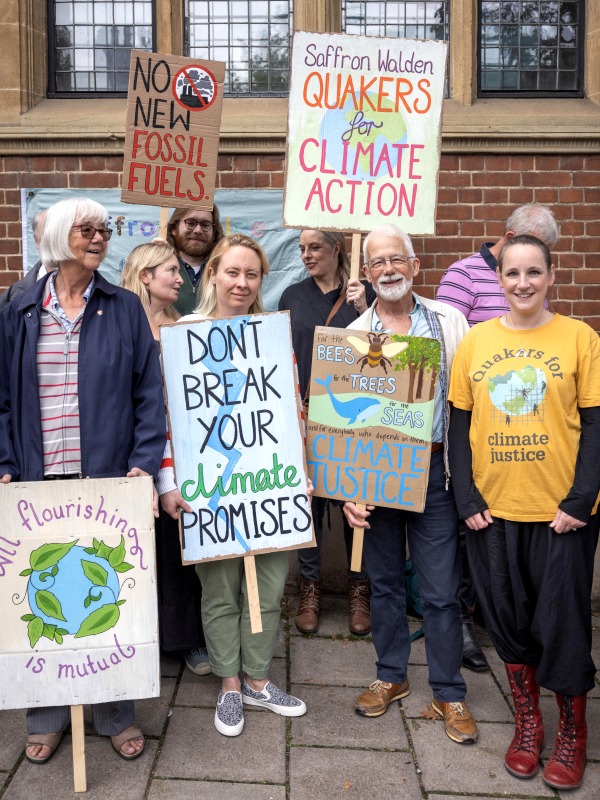Eco News October 2023 - Stand by for the Politics
 The Climate Crisis has well and truly entered the political arena! Whether it is the revision of the electric cars deadline, the postponement of the end of gas boiler sales, the opening of a coal mine in Cumbria or the granting of licences to drill for oil and gas in the Rosebank, the two main parties are positioning themselves for the general election on this topic.
The Climate Crisis has well and truly entered the political arena! Whether it is the revision of the electric cars deadline, the postponement of the end of gas boiler sales, the opening of a coal mine in Cumbria or the granting of licences to drill for oil and gas in the Rosebank, the two main parties are positioning themselves for the general election on this topic.
In some ways this is good news. Ever since I became concerned about our environmental crisis, I have been hoping that it would get onto the national agenda, and was always disappointed. It featured as a minor issue in the 2019 General Election but was dwarfed by Brexit.
Of course it is an issue that should transcend party politics. The future of humanity on this planet is such an overwhelmingly vast issue you would think there was bound to be common ground: the survival of our children and grandchildren. But politics is fraught with the short termism of courting electoral popularity, and international relations are fraught with conflicting national self-interests.
Added to that are massive business corporations, deeply invested in fossil fuels, which exercise their power in this country, world-wide, and perhaps most conspicuously in the USA, through lobbying and political donations.
One argument that is commonly used is that the poor will suffer most from the switch to renewable energy. This all depends on who you define as ‘the poor’. Globally the world’s poor are already suffering and dying from our failure to halt and reverse climate change. Those who have contributed least to the problem are losing their crops, livestock and water supplies in deep and prolonged droughts.
Compared to that, the challenge of switching time-expired and inefficient domestic boilers in poorer households to heat pumps seems an eminently soluble problem. Similarly for small, struggling businesses often dependent on petrol driven vans, the interplay of subsidies, inducements, taxes and regulations needs to be carefully managed to aid the inevitable transition.
Meanwhile, as the issue enters the political arena, claims are made about how we compare to other countries, how we are ‘world leaders’ in this or that, or how we will meet our ‘legally binding commitment’ by 2050, but need to ‘max out on oil’ just for now. The planet, of course, takes no notice of such boasts. Every tonne of CO2 we pump into the atmosphere is going to be doing damage for centuries to come, until our great, great grandchildren extract it. Trees alone simply can’t keep up with our emissions. What matters is how many tonnes we put up there between now and net zero.
There is a beautiful world to enjoy if we can plot a course to get there. A world in which every country is self-sufficient in clean, renewable energy, whether wind, wave, geothermal, tidal, solar, hydro…. Every day God’s creation gives us more energy than we can possibly use. This could be energy owned by communities for their own benefit rather than by multinational companies for their own vast profits; secure energy that does not lead to international tensions, blackmail or war; energy that is affordable for everyone so that no one has to choose between heating or eating. A wonderful world!
We need our politicians to take the lead, but let’s not let politics stand in the way.
Edward Gildea, Eco Team Leader
* Above photo by Celia Bartlett showing our Edward Gildea at the Quaker Climate Crisis vigil on Sunday, 1st October in Saffron Walden. It illustrates how Christians can unite to engage with moral/political issues without being party political. Mike Hibbs (Lib Dem) was there, as was Cherry Parker (Labour). Standing next to Edward in the yellow T shirt is Lizzie Rawlinson-Mills, who organised the event.